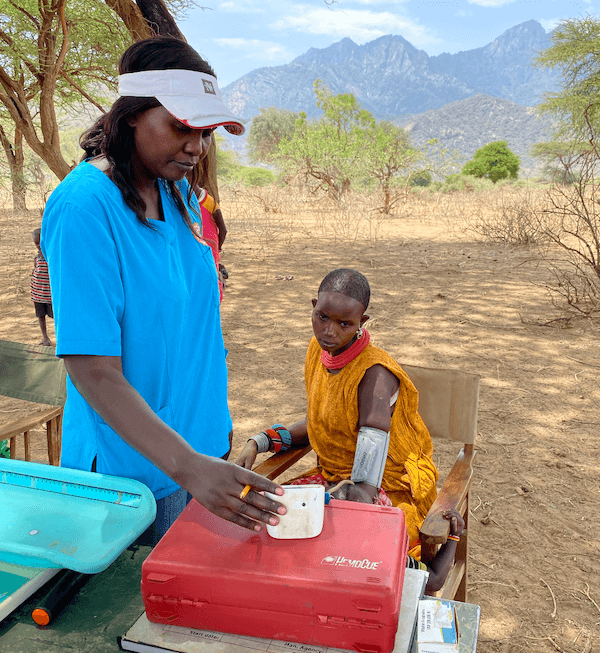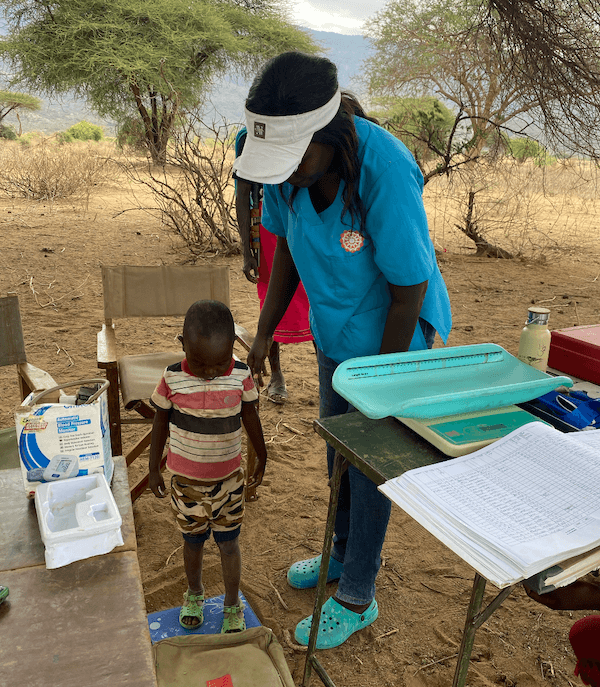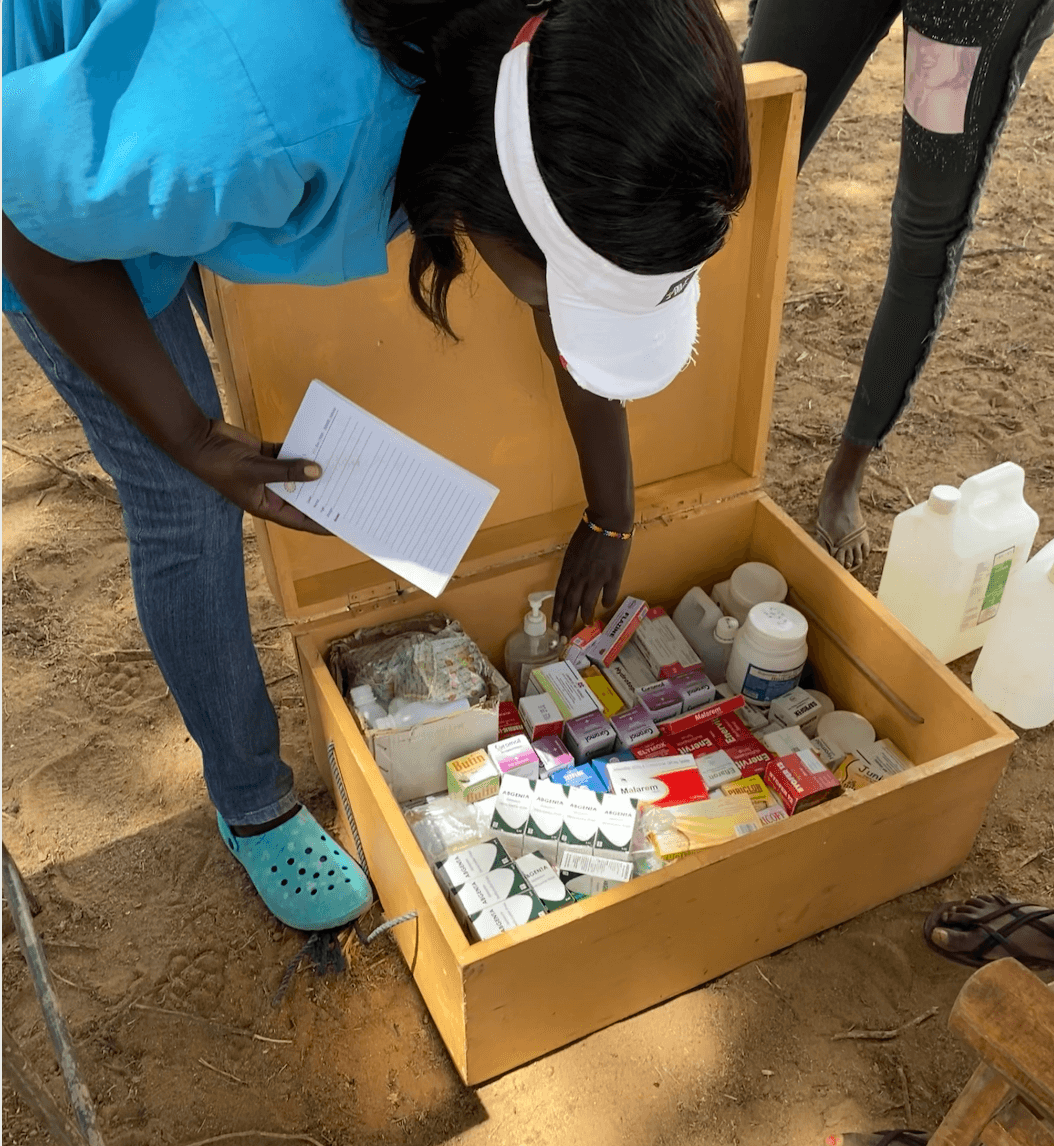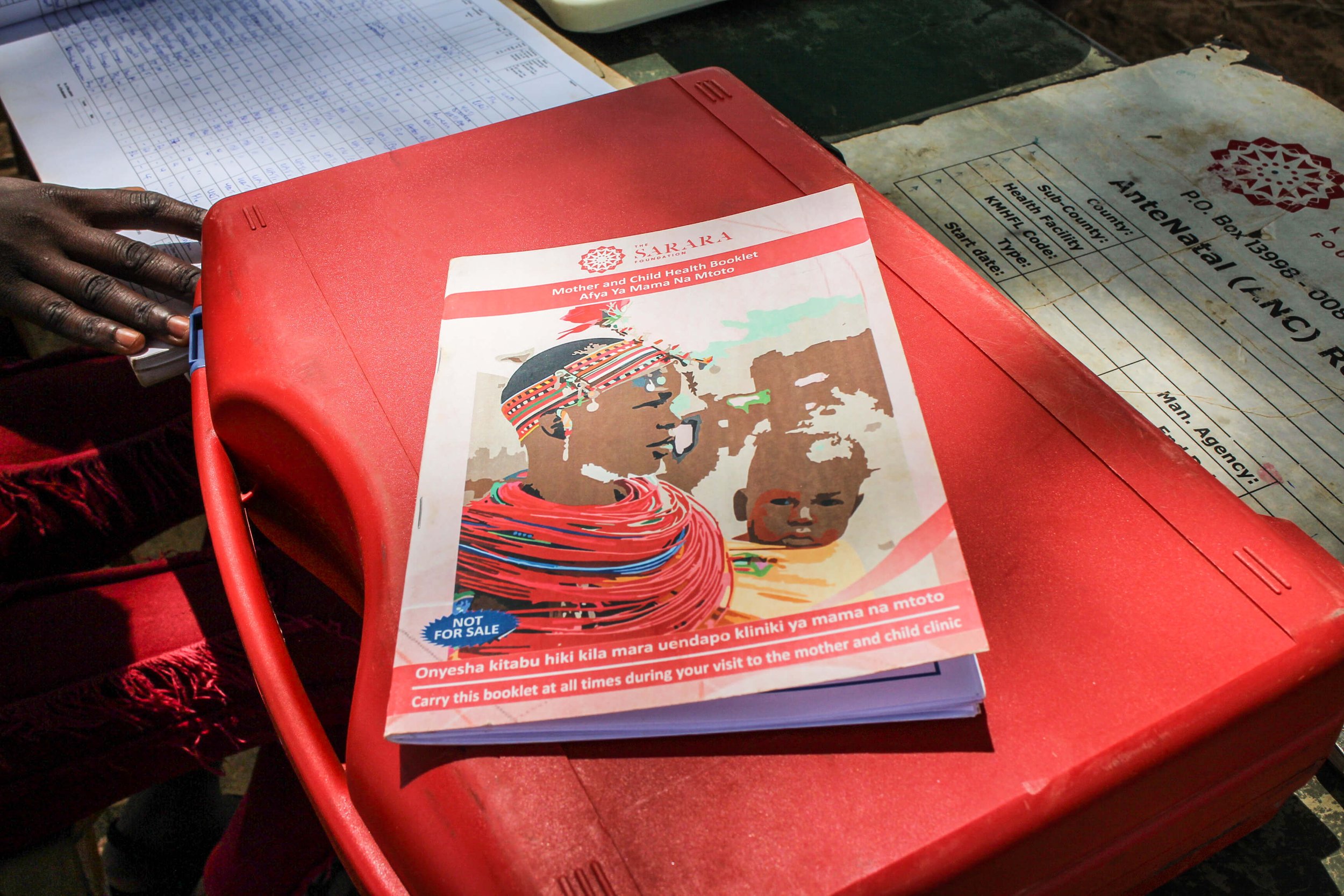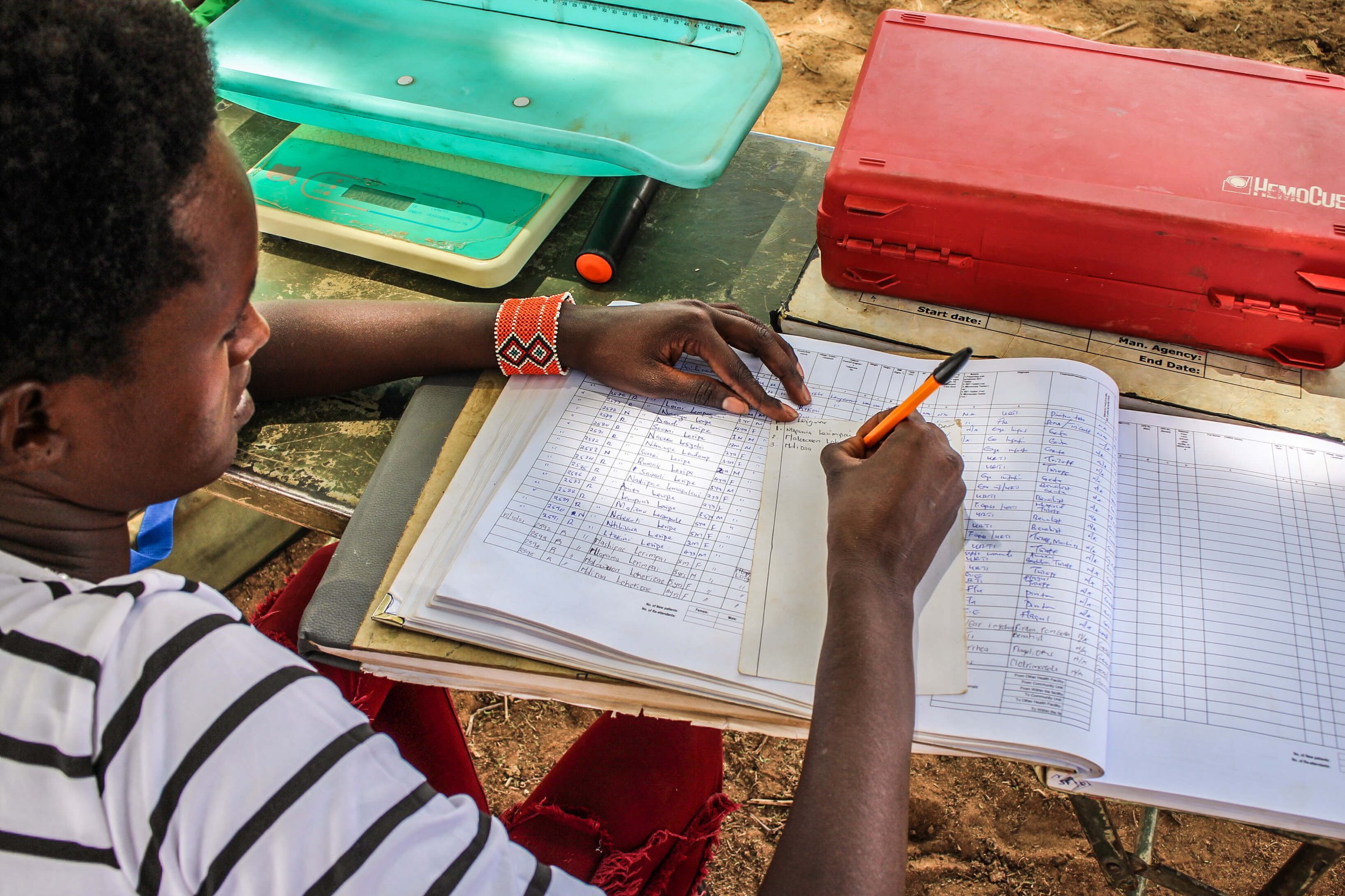Meet Nurse Dorcas
Meet Nurse Dorcas Lemargeroi,
the matriarch of our Nomadic Healthcare Program.
Dorcas’ genuine empathy for people, her contagious smile, and friendly demeanour has made her a treasure in the community.
Five years ago, if anyone who lives in Namunyak Conservancy got sick, they had to walk 30km to the nearest clinic in Wamba. This included pregnant mothers! But, thanks to Dorcas and her team things are very different today.
Dorcas travels to all corners of Namunyak Conservancy to deliver world-class paediatric and maternal care, serving to underpin a safe & healthy state of being for mother’s, newborns and children.
Running a healthcare program in a landscape that is shared by people and wildlife, the team is constantly met with a variety of unique and difficult challenges. Read below all about Nurse Dorcas’ inspiring story and her day to day experience at The Sarara Foundation.
When did you join the Sarara Foundation?
I joined the foundation on 1st of November 2019
What led you to working at the Sarara Foundation - where did you work before and how did you find out about Sarara?
Before joining the Foundation, I worked with different parastatals and non-governmental organisations in different parts of the country. My last employer was the Kenya Red Cross in Dadaab refugee camp handling mostly Somali refugees. I worked in a Neonatal and Maternal department which I thoroughly enjoyed.
I was sent an advert by a friend who saw the opportunity at Sarara in a WhatsApp group. As a job seeker who wanted some change, I applied for the opportunity and was interviewed. I went through the recruitment process and was given an opportunity to work with the Foundation. I took the challenge because most of my life I have worked in facilities that were already established.
When I started working at Sarara camp it was different as there was no facility running. It was my job to establish it. I love working in remote areas. People really need and appreciate the help.
Briefly describe what your typical day looks like.
My day starts at around 6am. Once in a while I skip rope and sometimes I do sit-ups! I take a shower, dress up and prepare a cup of tea. I do drug refills every morning to ensure we don't miss anything in the field.
At around 8am we are ready and we head to work in the manyatta. After work is finished, we visit patients who are along the way and need review, if any. We then return to our drug store and replace all equipment used in the field. I head back to my tent, rest a bit depending on the time we have arrived. Sometimes a shower around 6pm. At 7pm, I prepare my supper and make some notes about the day that will be used for writing my reports. Depending on how busy the day was, I normally go to bed at 9pm, but sometimes earlier.
What’s the one thing you think that people don’t know about the Sarara Foundation?
The Sarara Foundation is small in terms of infrastructure, building and storage, but the Sarara Foundation has made a massive impact on the community.
What would you’d like us to fundraise for?
An ambulance to support EMS response training.
Community Health System with a full-time administrator to support community health volunteers and our safe motherhood program as well as train health leaders.
Creating a Cold Chain Vaccine Fridge System powered by solar and vaccine carriers for immunisations in the community.
A proactive outreach programme to support breastfeeding mothers with porridge flour (CSB-soya blend corn).
Creating a baby pack program for new mothers where we provide them with a bag containing macintosh, pads, nappies, baby wrappers, soap and a container for carrying water,
A 3-year education and training program to support our portable ultrasound machine
A modest endowment and first-year salary to provide for new staff: 1 Nurse and 2 office-based volunteers
A special kit for sexually transmitted diseases, with 2 volunteers in the same programme.
When did you decide that you wanted to be a nurse?
I made up my mind that I want to be a nurse when I finished my secondary education.
Where did you study to become a nurse?
For my nursing, I attended Consolata School of Nursing in Wamba Samburu, East Sub-County.
What have been some of the most rewarding aspects of working as a nurse in Namunyak Conservancy?
There are many rewarding aspects but I love attending to the community. They are friendly, welcoming and loving. They own the programme and use the facility well. Despite not being well equipped, they have trust in our programme. We have done our best to save lives. For the few that have touched their hearts, they will live to thank the Foundation for work well done. Few might not be happy, but most are.
What do you think, or hope, the results of your and the Healthcare Team’s work will be?
What do you hope to see in the future?
In the future, I hope to see a community that has changed in terms of behaviour. A community that is willing to change. The only reason why they’re facing more problems is because of their way of life. They migrate in search of pasture and as a result, they end up cutting trees, and migrating to areas that are hard to reach. When they return from these remote areas, you find malnourished and underweight children and anaemia in pregnant women who have no balanced diet.
What specific challenges have you encountered while working as a nurse in Namunyak Conservancy?
It has been an amazing experience but also very challenging. Working in an area where the community fully depends on you as their only hope.
The community still doesn't understand how we can have a programme for a certain group rather than having a programme running for the whole community. I have to explain this on a daily basis.
It is challenging running the programme with only one car.
Poverty leads to lack of food for the family, especially women and children.
Delay in immunization.
Defaulters of important programmes like the antenatal clinic and immunization programme as well as follow ups with patients due to constant migration.
Breastfeeding mothers in need of supplements for milk production.
Urgent need of a motorbike to help in responding to an emergency rather than using the car, to save on fuel expenses.
Support Dorcas and the Nomadic Healthcare Program
Any donation, small or large, helps us to continue our work on the ground.
Our incredible healthcare team at the Sarara Foundation:
Kalamon Pakiyio, John Parito, Dorcas Lemargeroi


